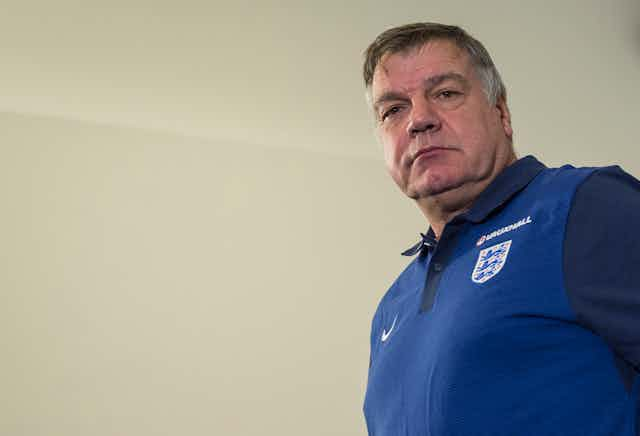The departure of Sam Allardyce from the job of England football manager brings the country back to its familiar territory of sporting crisis. Cue the “most difficult job in football” laments and “global laughing stock” conclusions over the state of English football and the game’s supposed top job.
It was not poor performances on the pitch what did it for “Big Sam”, but a newspaper sting that linked him with allegations of impropriety.
Before addressing the consequences of his departure, how Sam Allardyce actually became the manager of England in 2016 is worth considering. Never mind previous accusations of irregularities, surely Allardyce’s underwhelming impact at the clubs he managed prior to getting the England job, not least West Ham and Newcastle, should have been a red flag for the FA. One reading of Allardyce’s club career is the larger the club he joins, the less satisfied his key constituents – the fans – have been.
Times have changed
Part of the reason Allardyce got the top job is likely the extraordinary paucity of adequate English candidates to rival him. Historically, coaching and technical ability has never much detained the English football team, which relied on “natural talent” and physicality to see things through. But times have changed.

So where does this leave the England team? The departure of Allardyce is far from its biggest problem. The national team has suffered significant collateral damage from the Premier League’s success. The influx of foreign players and money has taken its toll on the national team’s performance.
In 2014, an FA investigation into the condition of English football and the national team confirmed that a sea change had been taking place in the domestic game in England. In the first season of the Premier League (1992-93), 69% of starts were made by players qualified to play for England. By the 2012-13 season this figure had fallen dramatically to just 32%. Among the top four English clubs in 2012-13, English-qualified players had been further reduced to only 28% of starts.
Meanwhile, in the Champions League in 2012-13, only 22 English players appeared in any group matches, compared with 75 Spanish players, 54 German players and 47 Brazilian players. Nothing much has changed since. The FA could have added to this glum list of domestic failings that (until goalkeeper Joe Hart’s brutal ejection from Manchester City in August took him to Torino in Italy) no top English-qualified player has been playing outside the Premier League for a few years.

This means that in an industry pretty much defined these days by money, any new England manager is left effectively neutered: with no spending power, an irritant media stoking national expectation, and days of down-time spent moribundly watching one or two prospects in a sea of (usually better) foreign imports. And for the increasingly residual group of nationally-qualified players, many are not really central to the ambitions of their own clubs.
At loggerheads
Plus, in the era of globalisation and the financial power of club football, few supporters of elite clubs believe that international football is the pinnacle of the game anymore. Fans are all too aware that the global roster of the elite club teams can better what England has to offer. Accordingly, following England these days has largely become the preserve of those outside the elite club nexus – though every two years some are vaguely roused once again to stick plastic flags on their car windows and to see who else can expel a lacklustre side from the finals of the international tournaments.
The FA, meanwhile, has done little to make the national side more relevant to fans. It could have explored ways of making the England team more routinely central to the lives of football fans outside London – for example by continuing the successful experiment of hosting international matches around the country. But it chose instead to shackle the England experience to the new Wembley.
The new St George’s Park coaching development in the Midlands and talk of capturing the “ever evolving” England DNA (whatever this is) with its training philosophy might conceivably produce a better way ahead for English football. But what if its football DNA is actually not very good? After all, winning international competitions is an aberration, not a tradition, for the England national team. Losing to gutsy Iceland is actually far more typical of its post-war footballing DNA than the World Cup triumph of 1966.
Maybe England should just accept its lowly international status and munch on the Premier League? At least it is successful. Failing that, much better educated and trained English coaches is what is desperately needed; smart, motivated, principled men and (why not) women who can work, above all else, with real vision and imagination with a declining national talent pool. Future Big Sams need not apply. It’s really not that much to ask.

